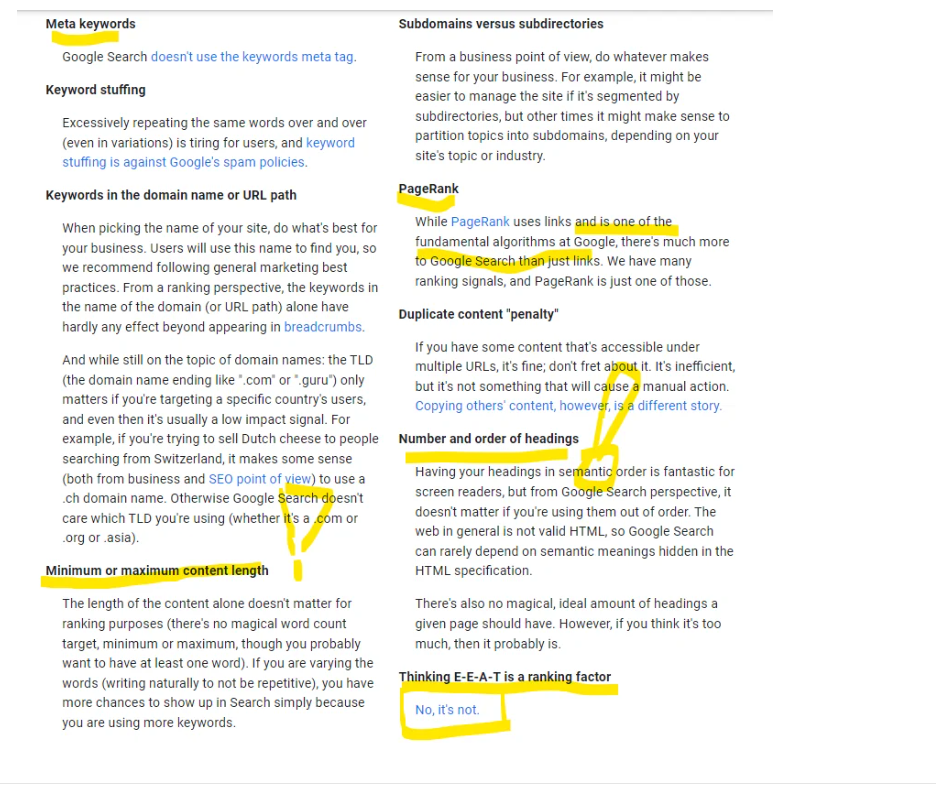In the world of Google and SEO, everyone is vying for first place. Its a $300 billion race – at least that’s just the advertising value. Who knows how much business Google generates? 10X that? 100X? With Ad clicks getting just 10% – it could be as much as a $1 trillion. Thats huge.
So how does Google judge or score content? What makes it rank
Table of Contents
ToggleWhat is authority in SEO?
Basically, in the original and far more complex PageRank thesis by Larry Page and Sergei Brin, PageRank is an objective ranking model that Google has used since day 1 to prioritize or rank sites in search. As each site links to another site, acting like vote, sites pick up and gain Authority.
Authority is the sum of the value of all backlinks divided by the relevance of each page and the target page that they link to. Not the sum or count of links, the sum of the value of all of the inbound links. Each domain has a different amount of authority – called “SiteAuthority” (aka Google Authority), which new pages seem to inherit (or in part). Each internal link loses about 85% of that authority. Each child page links out to another page. The relationship – the words used, the context of the incoming link and the relevance between them also comes into play -t he less relevance, the less authority passed.
The importance of backlinks and authority
Back in 1998 when Google was launched amidst 3,800 other search engines with giants like Yahoo! and MSN, the primary focus was on what each page said. When you searched for something about Microsoft, Microsoft.com ranked first and could cover hundreds of pages of results. Back then, the meta-keywords tag let SEOs put in misspellings, synonyms, abbreviations and similar words. Meta-keywords have stuck with SEO ever since, becoming the root of the popular and common SEO joke where “an SEO walks into a bar, restaurant, pub, public bar” etc.
Its stuck so well that its still referred to in the 2024 SEO Starter Guide on Google.com – because it just cannot escape people’s imagination about how search engines work. But they do not – think of the page as the claim. Every page wants to rank for whatever topic(s) it covers. That’s the claim. Like an undergrad studying for a degree – they are claiming a degree but they’ don’t get to confer it on themselves.
Instead of trusting pages, Google looked at who was willing to link to webpages and how, and what they said about them. That was the basis for PageRank and what Google now calls “Authority”
Backlinks are King in the land of Authority
Think of backlinks as votes of confidence. The more high-quality websites linking to yours, the more authoritative you appear to search engines. Google considers factors like the number of links and the authority of the linking sites. Earning backlinks from relevant, established websites is a powerful SEO strategy. Some SEOs have tried to build Google’s old EEAT paradigm into a ranking model but as I’ve written before this is impossible. Plus there’s the SEO Starter Guide (see below).
My Authority Building Template from Reddit
From answering this question 100 times on Reddit: How do you build Authority in SEO, this is my stock answer:
SEO Authority Channels
You need to build authority, raise your visibility and these channels are a great way:
- Partnerships
- PR, News
- Relationships
- Reviews
- Advertising and growth of earned media channels
Develop an SEO strategy that targets competitors, or competitor strawmen (i.e. unnamed, market averages)
SEO Keyword Research
- Branded
- Keywords with your brand
- Brand Influenced – e.g. Generic + Brand
- Generic
- Product
- Adjacent
- Informed
- Awareness
- Competitive
- Pricing
- Comparison Matrices
- Case Studies
We don’t know how Google works?
I always say that the most important skill in SEO is critical thinking – something I’ve seen JohnMu (John Mueller) of the Search team at Google echo loudly too. Thought-limiting cliches are a type of logical fallacy, a way of ending a debate by closing it off, saying there’s no more discussion to be had or thinking to be thought. One of the most common is that nobody knows how Google works
Except We do.

PageRank is the fundamental basis of SEO
It hasn’t really changed in 26 years – PageRank is the only way to objectively rank content. Best, good, funny, entertaining – these are all subjective. That doesn’t mean “hard” – it means that without a human, nay, without an individual, it has no value. It has nobody to apply their preferences, skew – whatever you want to call it – to the content. Content isn’t very binary or black and white. Most of the content we produce and consume – and every day we are breaking peak production records – is opinion.
Try to answer any of these questions objectively:
- Best Security product
- Best Car
- Best Printer (sorry! a bad SEO joke)
- Best CRM
- Best CMS
- Best food
- Best vacation
By the time you get to 6 and 7 you should start to see that these all vary and differ wildly. PageRank – the main invention of Larry Page(rank) and Sergei Brin has won out the search wars. We know from the recent Google Algorithm Leak that PageRank is the fundamental basis of SEO. And that it cannot and does not gauge content – because it cannot.
PageRank and Authority
PageRank literally lets other sites vote or send authority to other sites that then apply that to their content to rank.
Negative SEO and Authority Attacks
Similarly, people often worry about Negative SEO – buying backlinks from dubious vendors.
The real problem with effective Negative SEO is this:
1. The domains would need to have value/authority
2. That means spending $500 per link
3. That also means finding a link vendor that is compromised – i.e. known to Google
4. That means you can’t use your own vendor
5. You run the bigger risk of helping your competitor in trying to find a compromised vendor.
Effectively – you either don’t know where to find a vendor who is at risk and the cost of doing so – 100 links = $50k means its cheaper just to work on your own site





